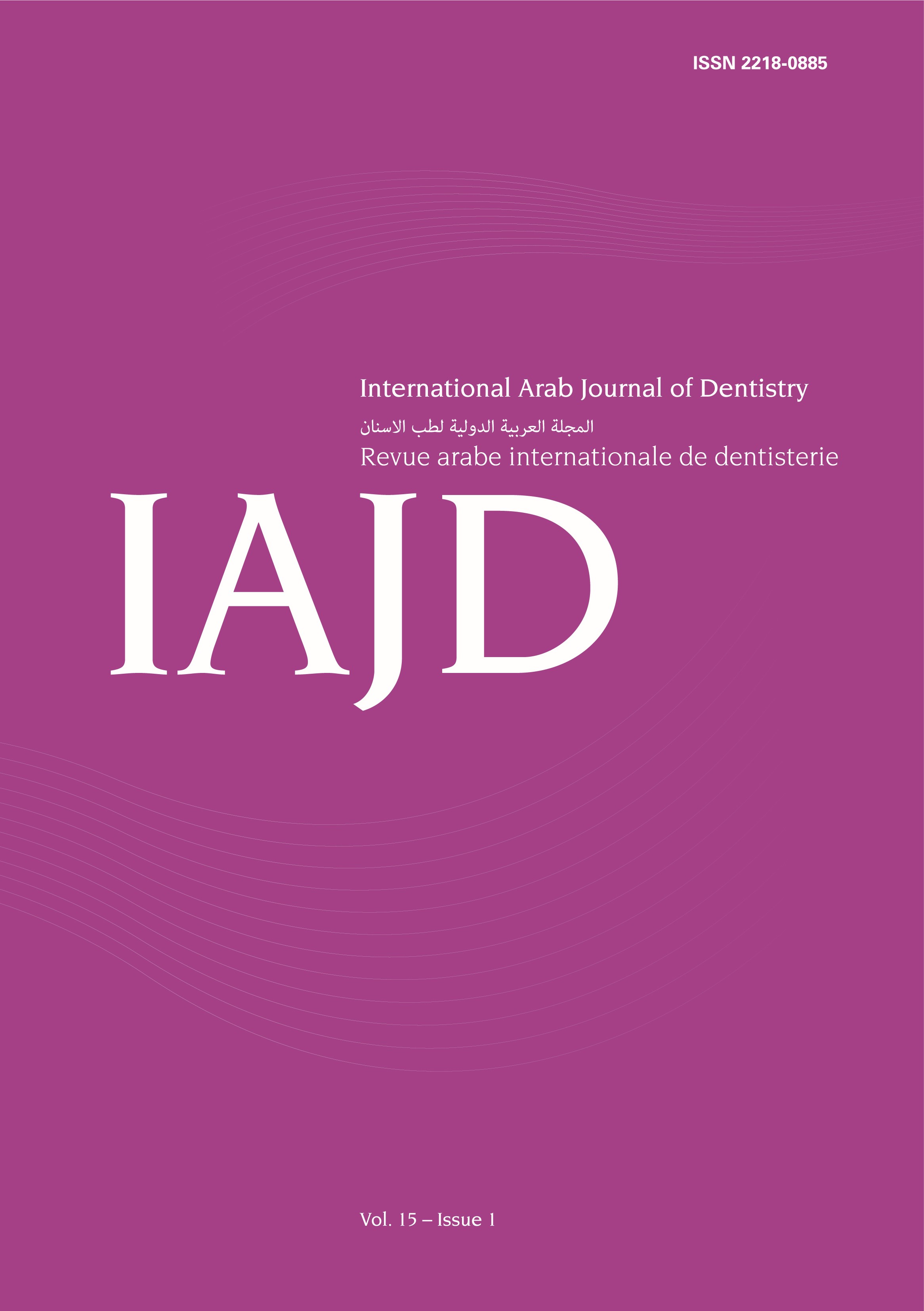Abstract
Objectives: The principal objective of this study was to compare the failure load between the conventional heat polymerized PMMA and the CAD/CAM milled PMMA interim full arch implant prostheses. The secondary aim was to evaluate the success of the distal extension of the temporary PMMA prosthesis.
Methods: A metallic edentulous upper arch model with 4 Straumann screw-retained abutment digital analogs was used to create 15 specimens for each of the 2 groups: Conventional and milled. Failure load was measured on 5 different regions on the left and right side of each specimen with the YLE universal testing machine: Anterior, premolar, and molar.
Results: The maximum force supported before breaking was noted for each region (N). The medians of failure load were statistically analyzed. Significant differences were observed between the 2 groups and among each region in the 2 groups. The posterior cantilever was the weakest sector in both groups followed by the anterior then the premolar regions.
Conclusions: The interim milled PMMA prosthesis are a better choice due to their improved mechanical stability.

